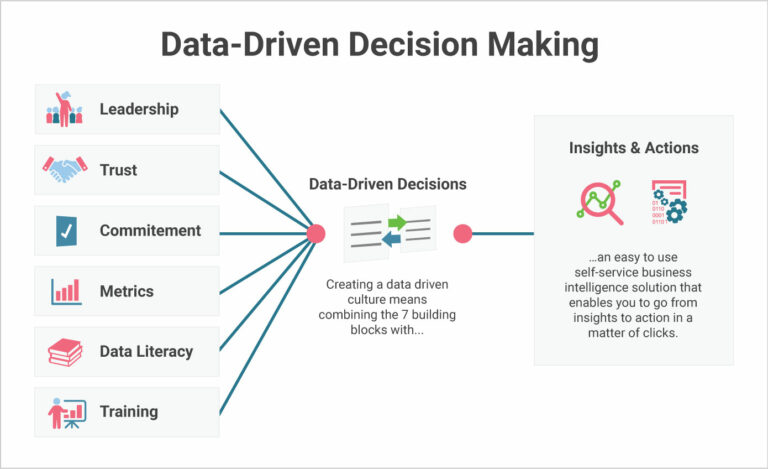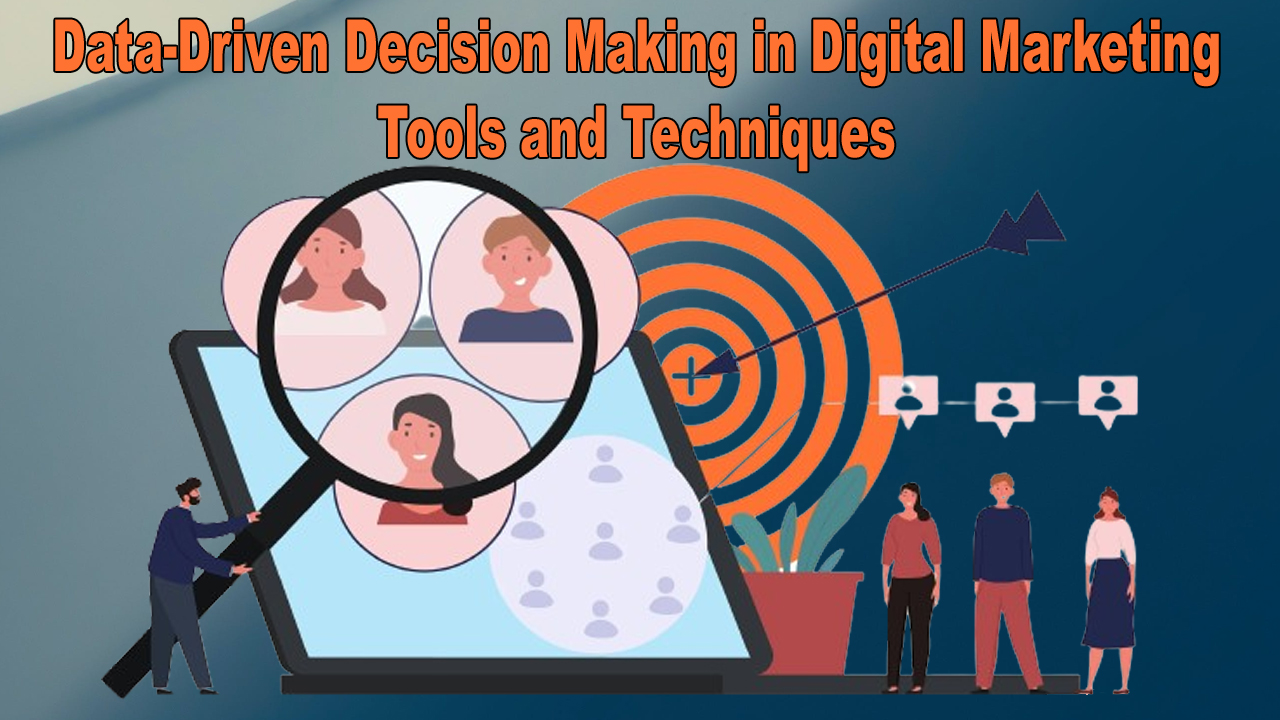Hey there! In the exciting world of digital marketing there’s a secret ingredient that helps marketers make really smart decisions – it’s called data. Imagine it as a helpful guide that shows what people like how they act and what’s popular. This article is all about why using this data is super important and how simple tools can make a big difference in the digital marketing adventure. Ready to dive in and discover how data makes marketing even cooler? Let’s go!
The Importance of Data in Digital Marketing
So why is data such a big deal in the world of digital marketing? Well, think of it like having a magical map that guides marketers to success. This map created from tons of information shows what people enjoy how they move around online and the trends they follow.
In the digital universe, every click like, and share leaves a little trail of information. When marketers gather and understand this data it’s like having a superpower. They can see what’s working and what’s not and make clever decisions to create strategies that connect with people.
In simple terms, data is the key that unlocks the secrets of digital marketing success. It’s like having a cool friend who knows exactly what everyone likes and helps you throw the best party ever – but in the online world!
Tools for Data Collection and Analysis
- Google Analytics Google Analytics is a powerful web analytics service that tracks and reports website traffic. It provides a wealth of information including audience demographics user behavior and conversion data. Marketers can use these insights to optimize their websites understand user journeys and refine their digital marketing strategies.
- Social Media Analytics Tools Platforms like Facebook Insights Twitter Analytics and Instagram Insights offer valuable data on audience engagement reach and demographics. Marketers can use this information to refine their social media content identify the most effective channels and allocate resources strategically.
- Customer Relationship Management (CRM) Systems CRM systems such as Salesforce and HubSpot allow marketers to manage and analyze customer interactions throughout the sales funnel. By understanding customer touchpoints and preferences marketers can tailor their campaigns to resonate with their target audience.
- Email Marketing Analytics Email marketing platforms like Mailchimp and Constant Contact provide detailed analytics on email campaigns. Marketers can track open rates click-through rates and other key metrics to refine their email strategies and deliver more personalized and engaging content.
Techniques for Data Driven Decision Making

- A/B Testing A/B testing involves comparing two versions of a webpage email or ad to determine which performs better. Marketers can use A/B testing to optimize elements such as headlines images and calls to action based on real user data ultimately improving conversion rates.
- Predictive Analytics Predictive analytics uses historical data and statistical algorithms to forecast future trends. In digital marketing, this technique can help predict customer behavior identify potential leads, and optimize marketing efforts for maximum impact.
- Segmentation Segmentation involves dividing a target audience into specific groups based on shared characteristics. Marketers can then tailor their campaigns to each segment’s unique preferences and needs increasing the relevance and effectiveness of their messaging.
- Attribution Modeling Attribution modeling helps marketers understand the contribution of each touchpoint in the customer journey to a conversion. By analyzing attribution data marketers can allocate resources more effectively and optimize campaigns to focus on the most influential channels.
Challenges and Considerations

In the journey of using data for digital marketing, there are challenges and important factors that marketers need to navigate wisely. Let’s delve into some of these considerations
- Ensuring the accuracy of data is like having a reliable map. Incorrect data can lead to misguided decisions impacting the effectiveness of marketing strategies.
- Respecting privacy rules is a must just like keeping personal secrets safe. Marketers need to handle data responsibly to maintain trust and safeguard customer information.
- Understanding data is like solving a puzzle not everyone has the knack for it. Having skilled professionals who can interpret and derive meaningful insights from data is crucial.
- Balancing data-driven insights with creative thinking is akin to blending the perfect recipe. Too much focus on data might lead to a lack of creativity while solely relying on creativity may miss the precision that data provides.
- Technology is always on the move and staying updated is vital. Marketers must continuously learn about new tools and techniques to keep their strategies effective in the ever-changing digital landscape.
Key Considerations
- Reliable insights stem from accurate data. Marketers must invest in measures to validate and maintain data accuracy.
- Following privacy regulations is not just a legal obligation but a trust-building necessity. Marketers should prioritize the protection of user data.
- Having skilled professionals who can make sense of data is like having expert navigators on a complex journey. Their interpretation skills are invaluable.
- Successful digital marketing requires a harmonious blend of data-driven insights and creative thinking. It’s the sweet spot where precision meets innovation.
- Embracing change and staying informed about emerging technologies is crucial for marketers. The digital landscape evolves and adaptability is key to staying ahead.
Final Verdicts
In the digital age harnessing the power of data-driven decision-making is no longer optional for marketers—it’s a necessity. By leveraging the right tools and techniques marketers can gain valuable insights optimize their strategies and stay ahead in the highly competitive digital marketing landscape. As technology continues to advance the role of data in shaping marketing decisions will only become more prominent making it imperative for marketers to embrace and master the art of data-driven decision-making.
Frequently Asked Questions (FAQs) About Data Driven Digital Marketing
Why is data important in digital marketing?
Data is crucial because it provides insights into customer behavior preferences and trends. It helps marketers make informed decisions optimize strategies and create targeted campaigns ultimately improving the chances of success.
What tools can I use for collecting and analyzing data in digital marketing?
There are several tools available including Google Analytics for website data social media analytics tools (e.g. Facebook Insights) CRM systems (like Salesforce) and email marketing analytics tools (such as Mailchimp). Each tool serves specific purposes helping marketers understand different aspects of their audience and campaigns.
How can A/B testing benefit my digital marketing strategy?
A/B testing involves comparing two versions of a webpage email or ad to determine which performs better. It helps marketers identify what resonates with their audience refine content and improve conversion rates by making data-driven decisions based on real user responses.
What challenges should I be aware of when using data in digital marketing?
Challenges include ensuring data accuracy adhering to privacy regulations and the need for skilled professionals who can interpret and derive meaningful insights from the data. Finding the right balance between data-driven insights and creative thinking is also important for success.
How can I protect customer privacy while using data in digital marketing?
To protect customer privacy marketers should follow privacy regulations implement secure data handling practices and communicate transparently with customers about data usage. Building trust by prioritizing data security is essential for long-term success.
Is data driven decision making suitable for small businesses?
Absolutely. Data-driven decision-making is not limited to large corporations. Small businesses can benefit by using tools like Google Analytics social media insights and cost-effective CRM systems. Tailoring strategies based on real data can help small businesses compete effectively and allocate resources wisely.

Dilshad Mushtaq is the founder and CEO of Best SEO Zone which is a prominent digital marketing agency based in Pakistan Since 2010. He is a professional website developer & Digital Marketer who can create any website and rank it on Google Page One.




